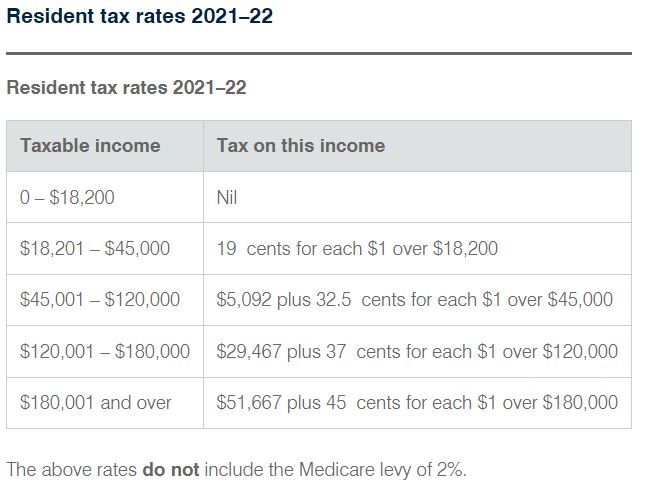Checking Out the Advantages of Filing an Income Tax Return: Optimize Your Tax Refund This Year
Filing an income tax return is typically viewed as a tough task, yet it plays an essential role in boosting your financial standing. By carefully reporting income and leveraging readily available reductions and credit histories, individuals can tap right into the potential for considerable tax obligation refunds. In addition, adhering to tax obligation regulations reduces the threat of fines. Understanding the nuances of this process can expose overlooked possibilities for cost savings. As we explore the different facets of tax obligation filing, it comes to be obvious that the benefits extend beyond mere conformity-- what strategies can you take on to ensure you are not leaving money on the table?
Value of Declaring a Tax Return
Filing a Tax return is a substantial responsibility for individuals and organizations alike, as it serves both compliance and monetary administration functions. Abiding by tax obligation legislations is crucial, as falling short to submit can lead to considerable penalties, interest charges, and possible lawful consequences. By submitting an income tax return, companies and people demonstrate their commitment to fulfilling their public responsibilities and add to the functioning of civil services.
Additionally, filing an income tax return offers a chance for taxpayers to evaluate their economic situation. It enables them to track income, expenditures, and total economic health and wellness, which can inform future budgeting and financial investment decisions. For many, tax returns are an entrance to potential reimbursements, as overpayment of taxes throughout the year can be recovered, providing a much-needed monetary increase.
In addition, the tax return procedure can assist in accessibility to various monetary services and products. Lenders commonly call for income tax return when figuring out creditworthiness for mortgages or financings, making it necessary for individuals and organizations seeking monetary assistance. Finally, submitting an income tax return is not simply a regulative obligation; it is a significant action in maintaining monetary stability and exposing potential advantages.
Understanding Tax Obligation Reductions
Tax deductions are often ignored yet play an essential duty in reducing gross income and making the most of prospective refunds. Recognizing the various sorts of tax obligation deductions readily available can considerably affect your total tax obligation. Deductions can be classified into two main kinds: itemized reductions and common deductions.
The criterion deduction is a fixed buck quantity that taxpayers can deduct from their income, varying based on filing condition. For lots of people, specifically those without substantial itemizable costs, taking the standard reduction is beneficial. On the various other hand, itemized reductions enable taxpayers to checklist eligible expenditures, such as mortgage interest, medical expenditures, and charitable payments, possibly yielding a higher deduction than the conventional choice.
It's vital to keep meticulous records of all insurance deductible costs throughout the year to assure you capture every qualified reduction. In addition, certain reductions may be subject to phase-outs or restrictions based upon revenue degrees. Acquainting on your own with these nuances can assist you purposefully intend your financial resources and optimize your income tax return. By leveraging and understanding tax obligation reductions properly, taxpayers can reduce their taxable earnings and improve their overall tax refund.
Discovering Tax Credit Scores
Maximizing your tax obligation savings entails comprehending the different kinds of tax obligation credit reports available to you. Tax obligation credit histories straight lower your tax responsibility buck for dollar, making them more advantageous than reductions, which only lower your taxable revenue.
There are two key classifications of tax credit scores: nonrefundable and refundable. Nonrefundable credit scores can lower your tax obligation to absolutely no yet will certainly not cause a reimbursement if the credit score official site exceeds your tax owed. Refundable credit histories, on the various other hand, can create a refund even if you have no tax responsibility, making them especially helpful for lower-income taxpayers.
Common tax obligation credits consist of the Earned Income Tax Obligation Debt (EITC), which sustains low to moderate-income working individuals and family members, and the Child Tax Obligation Credit scores, which gives economic relief for taxpayers with reliant youngsters. Education-related credit histories, such as the American Possibility Credit and the Life Time Discovering Debt, assistance balance out the expenses of college.
Usual Errors to Stay Clear Of
Steering the intricacies of income tax return can cause a number of typical challenges that taxpayers should understand. One considerable error is falling short to report all official statement incomes. Also little amounts from side jobs or freelance work must be consisted of, as the IRS gets copies of all earnings statements.
Another regular mistake involves neglecting deductions or credit scores for which one is eligible. Taxpayers need to completely investigate potential reductions, such as for student lendings or clinical costs, to avoid leaving cash on the table.
Furthermore, mistakes in individual details, such as Social Security numbers or declaring status, can postpone processing and reimbursements. It is crucial to double-check all information before entry to ensure accuracy.
Filing late or disregarding to file altogether can likewise result in fines and missed chances for refunds. Taxpayers ought to be aware of deadlines and strategy accordingly.
Last but not least, numerous people disregard to maintain thorough documents of expenses and sustaining documents. Organized paperwork is essential for validating claims and helping with any future audits. By preventing these usual blunders, taxpayers can simplify their filing process and improve their potential refunds.
Tips for Maximizing Your Refund

Following, take into consideration contributing to pension, such as an IRA. Contributions made before the tax obligation deadline can be deducted, potentially increasing your refund. In addition, if you are self-employed, make sure to make up business-related expenses that can reduce your gross income.
An additional essential method is to submit your return digitally. E-filing not just accelerates the handling time but likewise decreases errors that can take place with paper entries. Verify that you pick the proper filing status; this can substantially affect your tax obligation price and qualification for specific debts.
Finally, maintain thorough documents throughout the year. Organizing invoices and monetary papers can simplify the filing procedure and help you identify potential deductions that you might or else miss. By taking these actions, you position yourself to get the maximum refund possible.
Verdict

By methodically reporting earnings and leveraging available deductions and credit scores, people can touch right into the capacity for significant tax reimbursements. For several, tax obligation returns are a gateway to potential reimbursements, as overpayment of taxes throughout the year can be reclaimed, using a much-needed financial boost.
Comprehending the various kinds of tax reductions available can significantly impact your overall tax responsibility. Online tax return Australia. By recognizing and leveraging tax obligation deductions properly, taxpayers can reduce their taxable earnings and boost their total tax refund

Comments on “Maximizing Tax Deductions in Australia: Tips and Tricks for the Upcoming Tax Year”